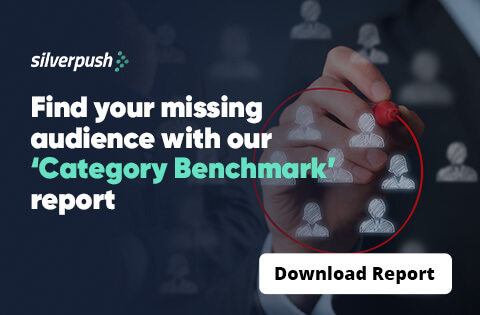How Contextual Advertisement will Become the Next Digital Marketing Trend? | 22 Mar, 2022

Contextual advertisement has been on the plan of digital advertisers lately. The primary motivation for this is the guidelines that both government and brands have brought in user privacy protection. Contextual targeting will be an exciting topic in the new online shopping world to emerge after these guidelines.
What is Contextual Advertisement?
It’s pretty simple and easy! Contextual advertising is ads shown based on the context of the target audience group. It resembles seeing a sports shoe ad on a sports news channel or website. Contextual advertising centers around the context of the customer rather than who the customer is. Similarly, the requirement for demographic and psychological information of the client to show the right ad is eliminated.
Is Contextual Marketing New in the Market?
No. If you’ve been in online advertising for over ten years, you must know that the answer to this question is no. Contextual advertising has been used for quite a long time in all media, not just online advertisements. However, because of the development of user-tracking techniques, advertisers have moved away from contextual advertising.
What are the Top Advantages of Contextual Advertisement?
Lesser Reliance on User Data
Contextual ads can be a perfect solution to the cookie issue, which is the most crucial issue advertisers have faced in recent times. Since the targeting in contextual marketing depends on the context, not the behavioural data of the client, the reliance on cookies that create data privacy issues has decreased.
Less Ad Fatigue
One of the most significant inconveniences of behavioural advertising is that it displays the same advertisement to the same user repeatedly. In contextual advertising, although the same ad is often shown to the user, advertisement fatigue is decreased because these advertisements are relevant to the content the user is consuming.
Brand Image Protection
Undoubtedly, one part of safety is legal compliance. But, the image can be something trickier to protect, especially because advertisers can’t always control where their ads are displayed. Often, brands have faced trolls because they showed their ads on adult sites or with extremist perspectives. It, however, was an outcome of user activity. In contrast, Contextual advertising puts the webpage at the centre of things. The brand has command over that web page by specifying the topics, subtopics, and keywords that connect with the promotion.
Greater Relevance
The primary assumption supporting behavioural advertising is that clients want to see advertisements related to general trends in their surfing conduct. But, it could also happen that their current needs don’t fall in with those trends. For example, somebody reading home appliances may not need to see advertisements about website designing services, even if they have recently searched for them. On the other hand, a YouTube contextual ads for healthy protein powders might be more relevant to their present state of mind and draw in more clicks.
No Worry about Banner Impairment
There is a common phenomenon where clients have learned to ignore ads. For example, a bus ticket booking site running advertisements for a bus review platform makes better sense than displaying YouTube contextual ads related to women’s clothing.
Why Advertisers Moved Away from Contextual Ads?
Advertisers have moved from contextual advertising solutions since cookies-based behavioural advertisement models have beaten contextual promotion models. But, it is incorrect to say that contextual advertising has vanished.
Brands that explicitly own a specific niche continued to be clients of contextual targeting. For instance, most advertisements for kitchen appliances brands are still displayed on recipe sites.
If Contextual Advertisement Failed Earlier, Why Should You Rely on it Today?
A doubt is likely on the mind of any individual who considers contextual ads to be an alternative to behavioural marketing. Contextual marketing had execution issues before. The most compelling reason for this was that the technology of the period made it essential to put the ad manually. It was a massive issue for advertisers with enormous inventories of ad space. So, advertisers couldn’t entirely perform the performance streamlining of the ad spaces.
Today, with the advancement of AI innovations, it is simple to solve this issue. A huge thanks to AI that can quickly identify the content, and accordingly the context, more accurate ad impressions have become conceivable.
Is Google a Hurdle to Gain Popularity?
Contextual ads have a significant hurdle to gain re-popularity: Google.
Since February 2020, Google has taken back the ability of advertisers to target based on content category. It is right to say that Google needs the behavioural targeting models dominated by it to proceed.
Even though Google dominates the world in behavioural targeting, the same doesn’t go for contextual advertising. Numerous alternative DSPs create robust products in this space where Google is relatively weak.
To know more about contextual advertising read our blog on 7 Reasons Why Marketers are Relying on Contextual Advertising in 2022.

BLOGS
Migrate from Oracle to Silverpush: Unlock Advanced Contextual Advertising Solutions
The news that Oracle plans to shut down its advertising business by the end of September has sent shockwaves through the ad industry. Once the most prominent advertising data seller in the market, Oracle is now closing its advertising division. This included Datalogix for offline consumer data, Grapeshot for contextual ...

BLOGS
Cannes 2024 Recap: Silverpush Takes AI Discussions to the French Riviera
As Cannes 2024 concludes, the echoes of vibrant discussions, insightful panels, and significant meetings continue to resonate. This year’s central theme was clear: AI's growing dominance in advertising solutions, optimizing campaigns for business outcomes, and reaching audiences effectively across various screens. With videos becoming increasingly digital, the potential for more addressable ...

BLOGS
UK Programmatic Advertising Spending & Trends in 2024
In 2023, programmatic advertising spending in the UK reached roughly £30.6 billion. The programmatic display advertising market is projected to grow by 12.6% in 2024, bringing it to within just four percentage points of becoming fully programmatic. This highlights how integral this technology has become to the UK ad industry. ...







